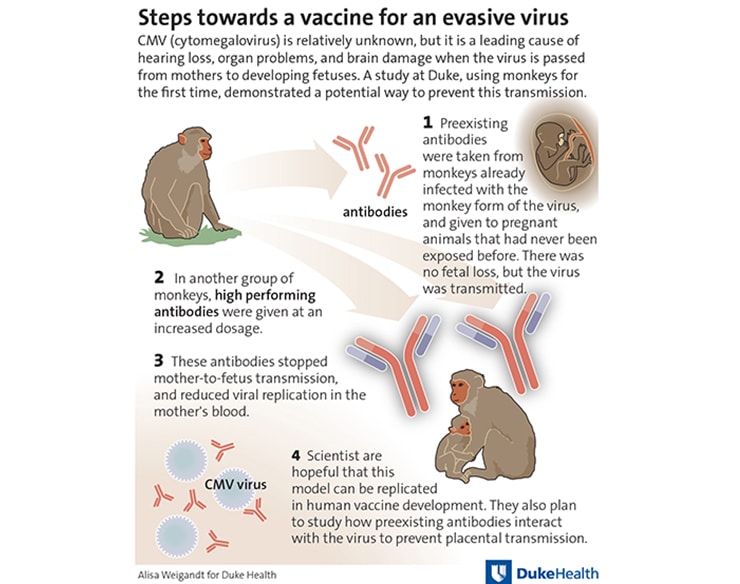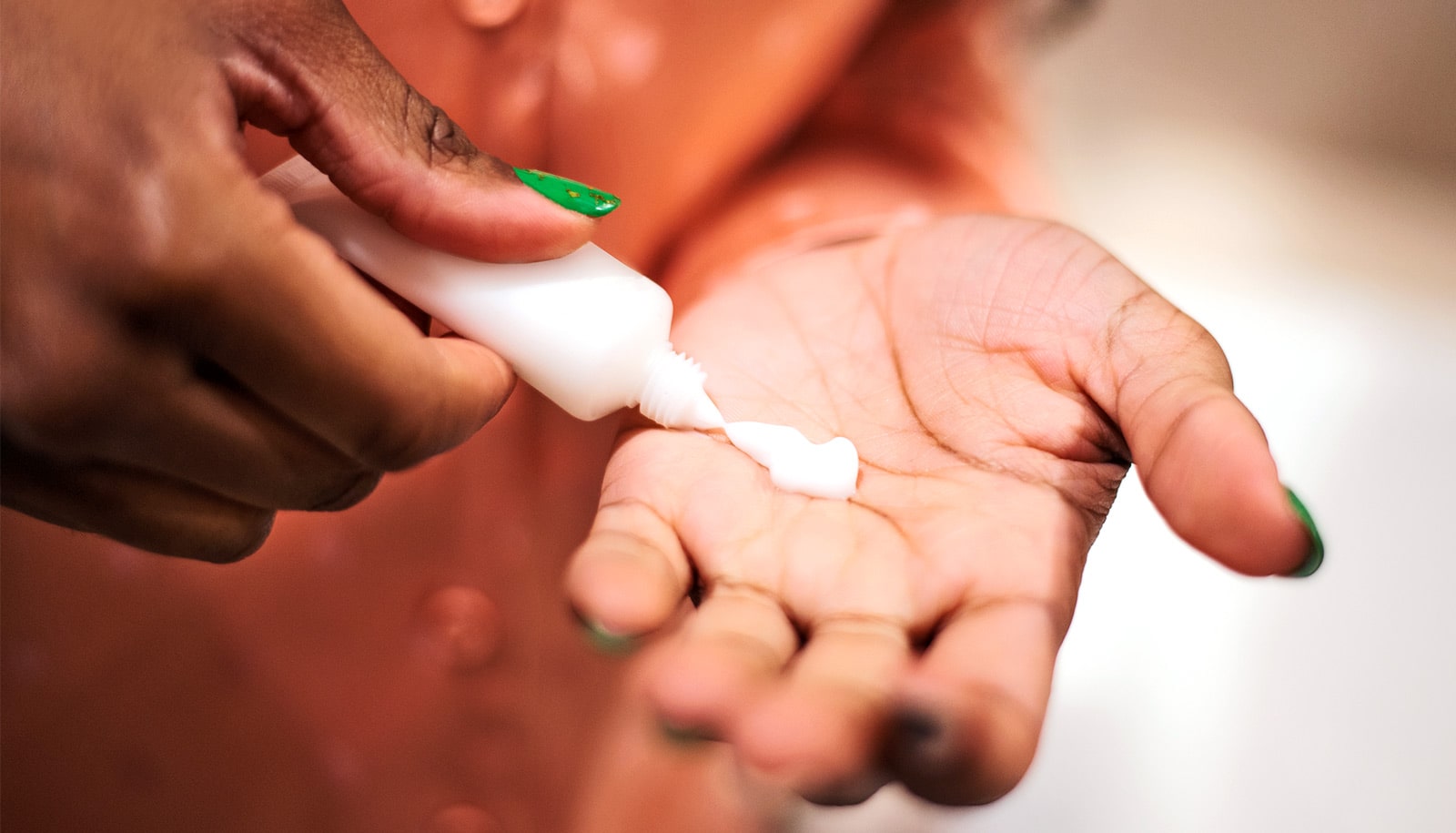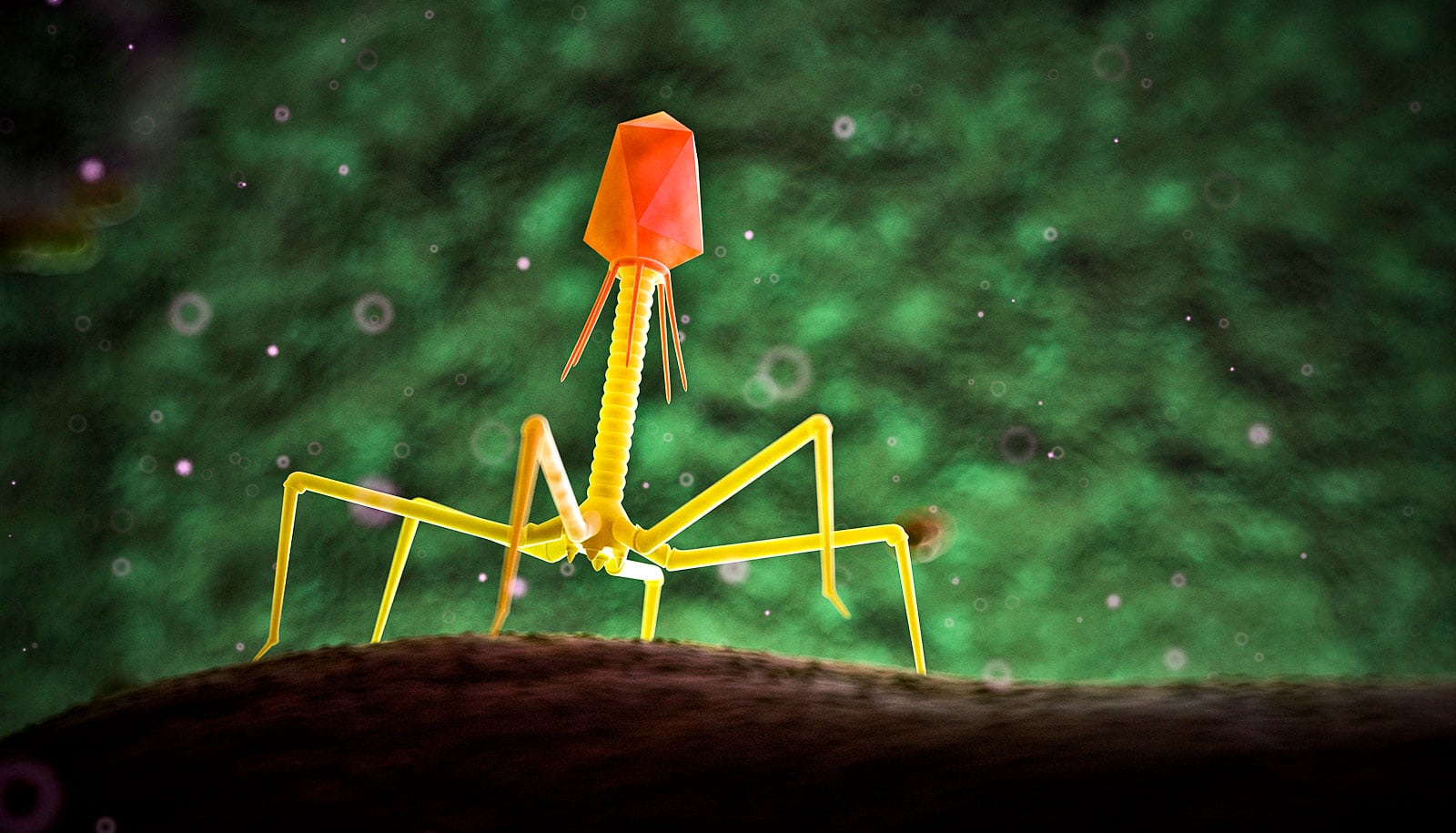New research with monkeys identifies a way to protect fetuses from cytomegalovirus, or CMV, which can cause many of the same brain and developmental impairments as the Zika virus.
One of only a handful known to be transmitted through the mother’s placenta to a fetus, CMV infects nearly 1 million infants a year worldwide and is a leading cause of microcephaly, hearing and/or vision loss, and nervous system damage.
With effective interventions lacking, development of a vaccine remains an urgent public health mission.

“The presence of potent antibodies at the time of the mother’s primary infection seems to prevent viral transmission and severe disease in the developing fetus, and therefore should be a primary target of vaccines to prevent neonatal infection,” says co-senior author Sallie Permar, professor of pediatrics at Duke University.
Using rhesus monkeys, researchers tested whether the offspring of mothers exposed for the first time to the rhesus form of CMV (RhCMV) could be protected from infection if the mothers first received RhCMV-specific antibodies.
The question is important, because the answer clarifies the type of immune response a successful vaccine approach should target.
“Ending congenital CMV infection is likely going to require an effective vaccine given before pregnancy, similar to how the rubella vaccine has eradicated congenital rubella syndrome in the Americas,” says first author Cody Nelson, a Duke Medical School student. “It’s important to know whether a successful CMV vaccine can rely on antibody responses alone, or whether we need to introduce other immune responses, such as T cells.”
How birth defect virus tricks the immune system
In experiments with pregnant monkeys, the RhCMV-specific antibodies protected the mothers from losing the developing fetuses, which is what can happen when the mothers are infected with RhCMV for the first time during pregnancy.
A higher dose of the antibodies completely blocked transmission of the virus in each of the three monkeys that received it, and also reduced the virus’s ability to reproduce and mutate.
“Most vaccines on the market today work through an antibody mechanism, so our study demonstrates that a vaccine for CMV can likely go down that traditional path,” Permar says.
Amitinder Kaur of the Tulane National Primate Research Center, is coauthor of the study. The National Institutes of Health Nonhuman Primate Reagent Resource; the National Institute of Allergy and Infectious Diseases; and the National Institutes of Health funded the work.
The findings appear in JCI Insight.
Source: Duke University



